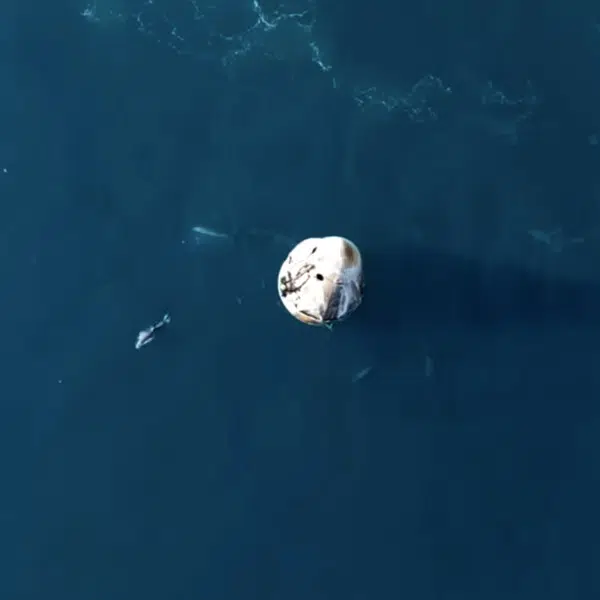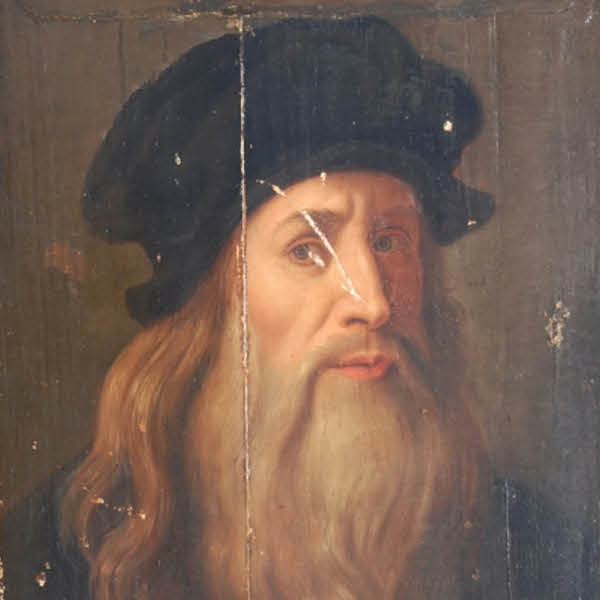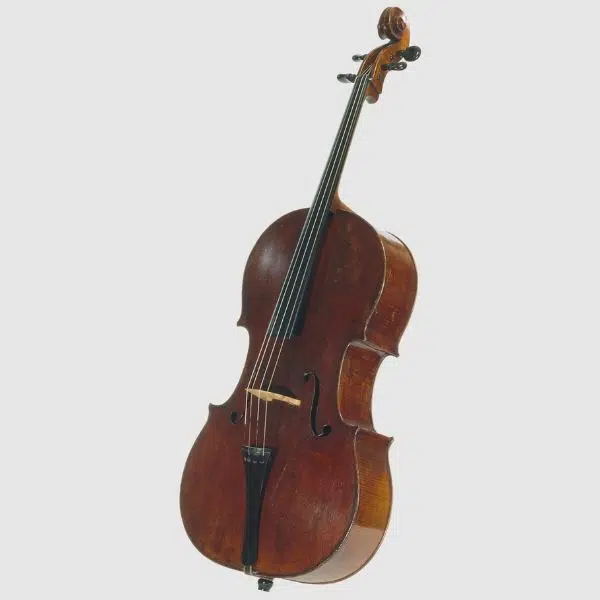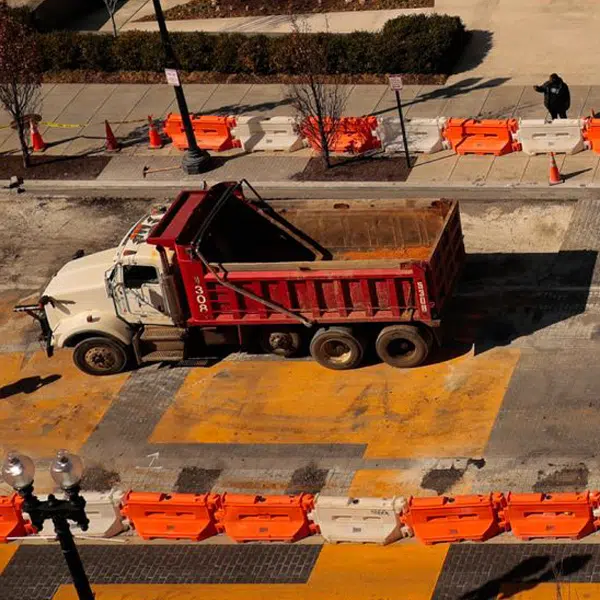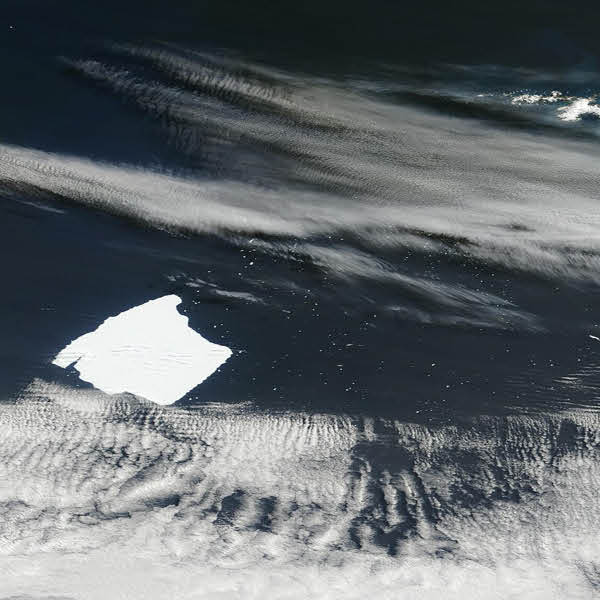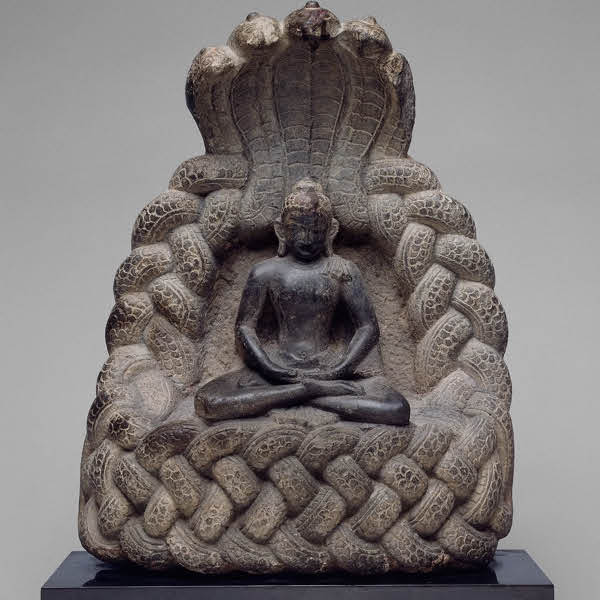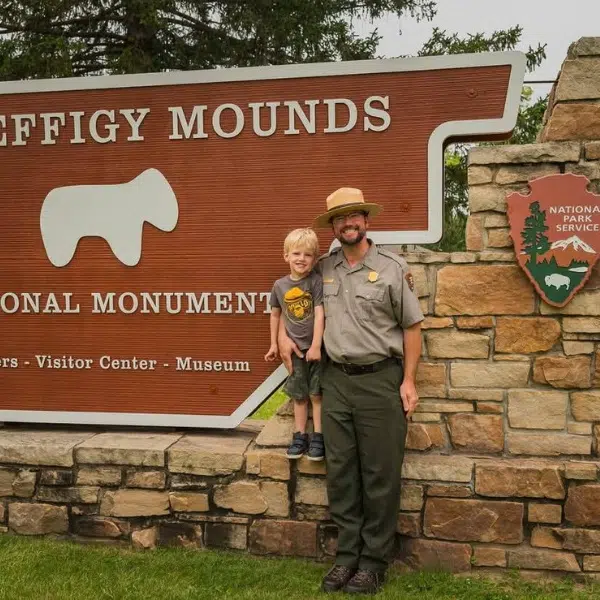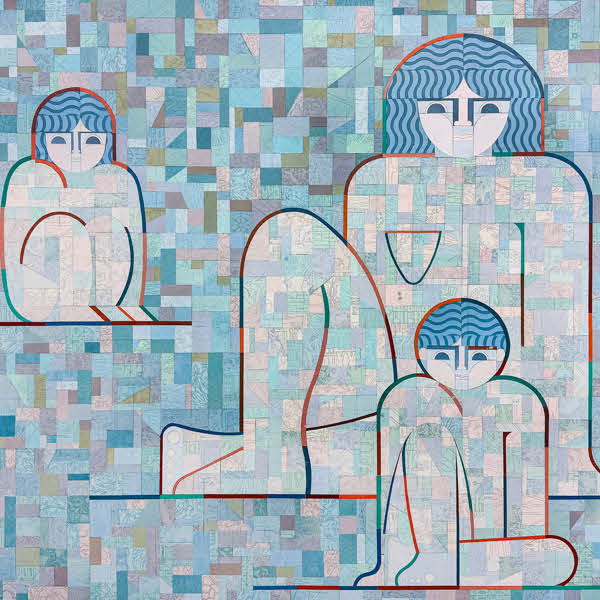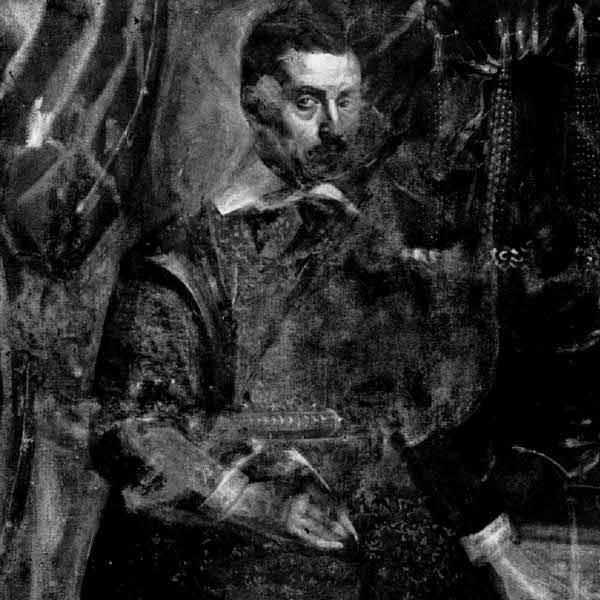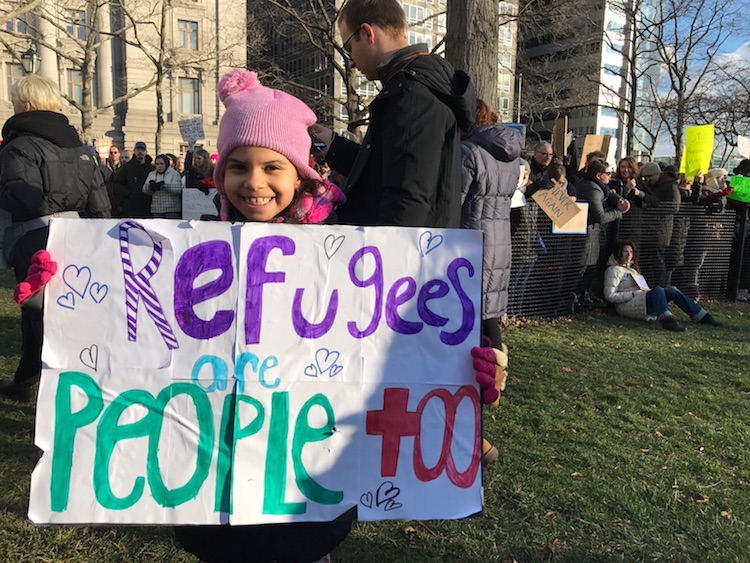
Photo credit: Cate Matthews
On Friday, January 27, President Donald Trump issued an executive order blocking Muslims from several countries from entering the United States, in addition to suspending the US’s refugee resettlement program. The backlash was swift—his fellow Americans were outraged. But rather than vent their frustrations exclusively on social media, hoards of demonstrators spontaneously assembled at their local airports as news spread that travelers—including refugees from Syria—were being detained upon arrival. From New York to Chicago to Los Angeles, those horrified by the ban made their voices heard. Similar to the recent Women’s March, protesters amplified their sentiments by holding immigration ban protest signs.
With messages scrawled on cardboard, people held signs that implored compassion. Many reminded us that refugees deserve the same pursuit of happiness as the rest of us—because, lest we forget, that they’re people too. Others had a historical bent to their signs. They point out that America was built on immigrants—and that the country’s open arms at one time saved their family from certain peril.
Some protesters, also afraid that history is repeating itself, drew troubling parallels to World War II. During this time, the United States government turned away Jewish refugees fearing that they were Nazi spies. These modern signs declared that we can't let this happen again.
On Sunday, after tireless work on behalf of the American Civil Liberties Union (ACLU), a federal judge in New York issued an emergency stay of removal for those affected by the order—essentially preventing their deportation. Others followed suit in Massachusetts, Virginia, and Washington in favor of those challenging Trump’s declaration. Like those who took to protest, they too feel that this ban should not stand.
Here are a selection of inspiring immigration ban protest signs from across the United States.
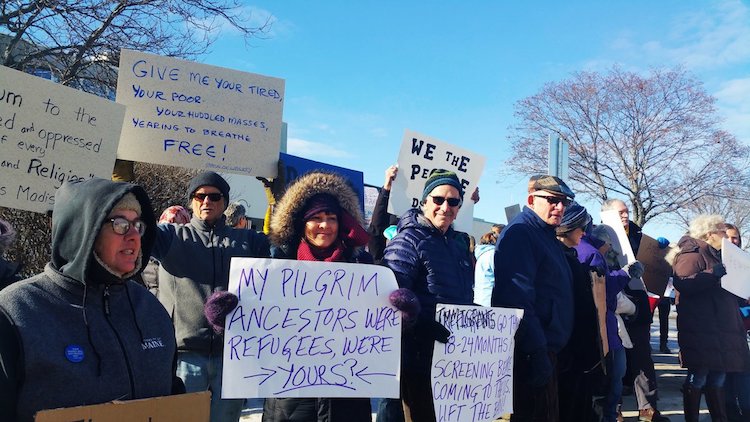
Photo credit: Maine Public
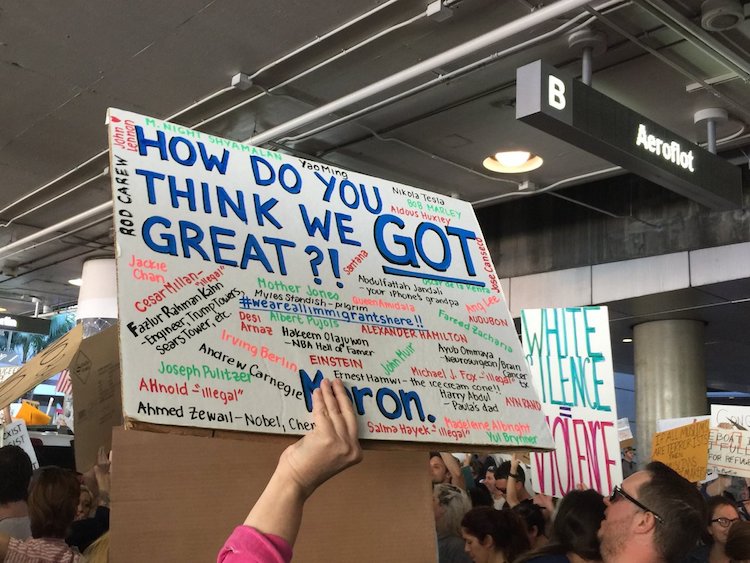
Photo credit: Lisa Bloom
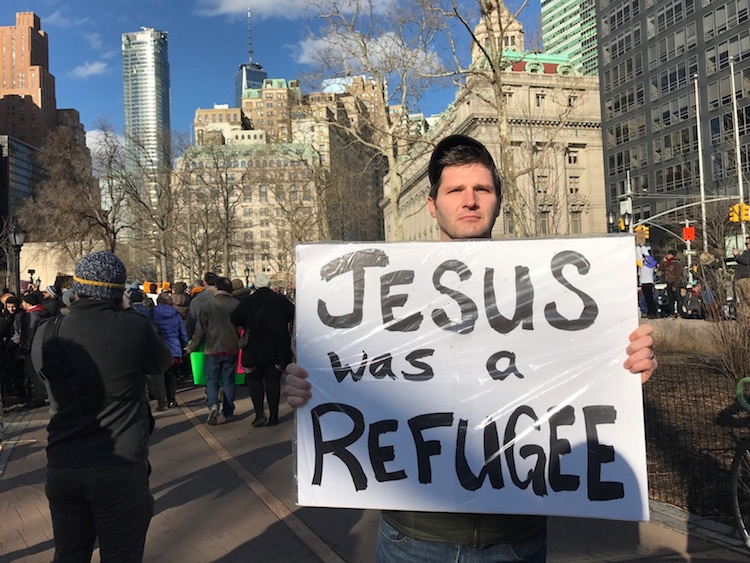
Photo credit: Cate Matthews
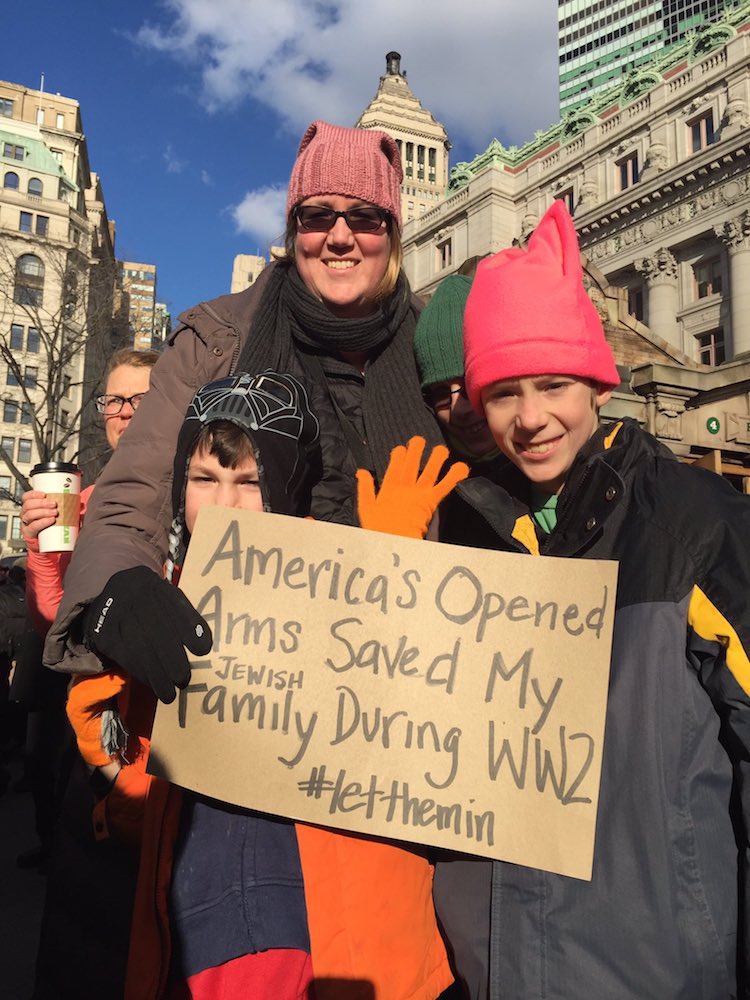
Photo credit: Hayley Miller
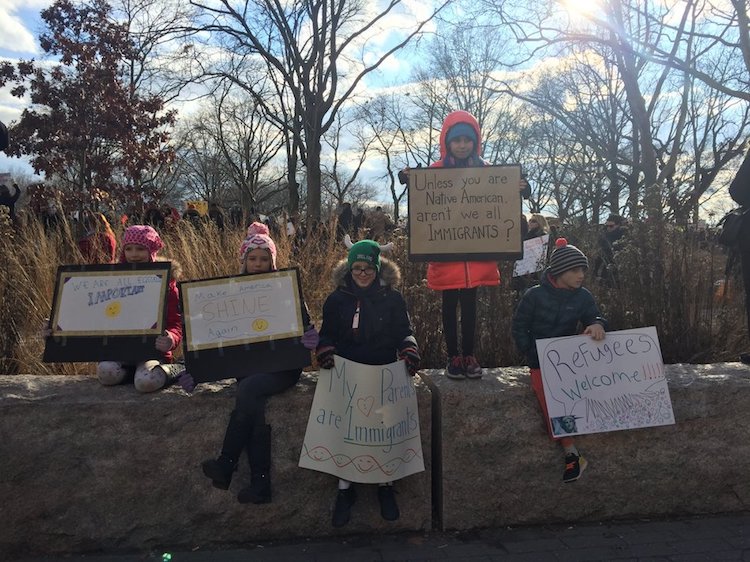
Photo credit: Hayley Miller
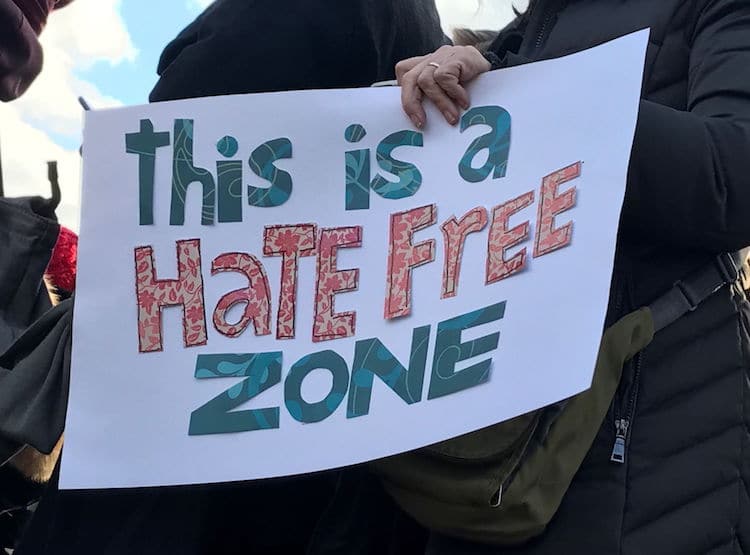
Photo credit: Cate Matthews
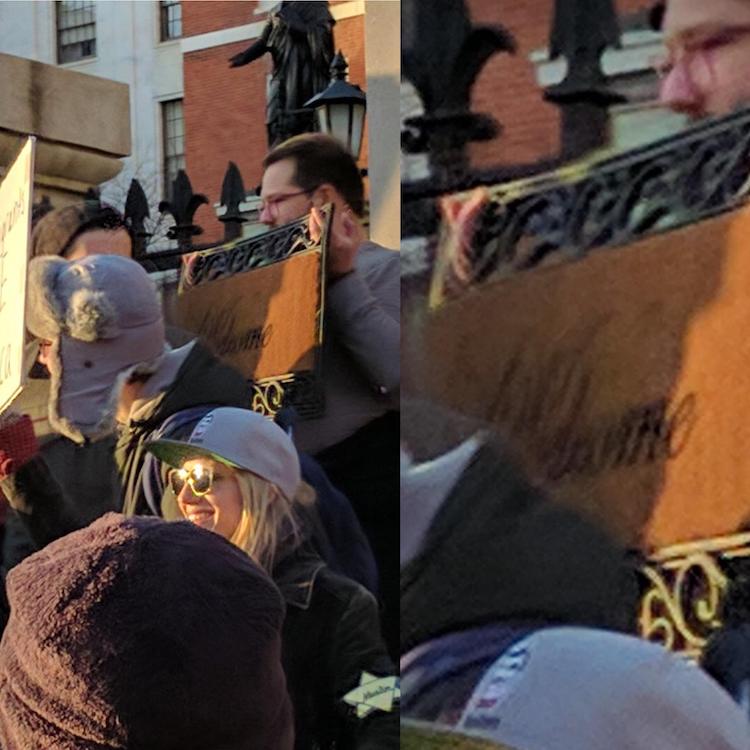
This man used a doormat as a sign.
Photo credit: Ibbyzaffy
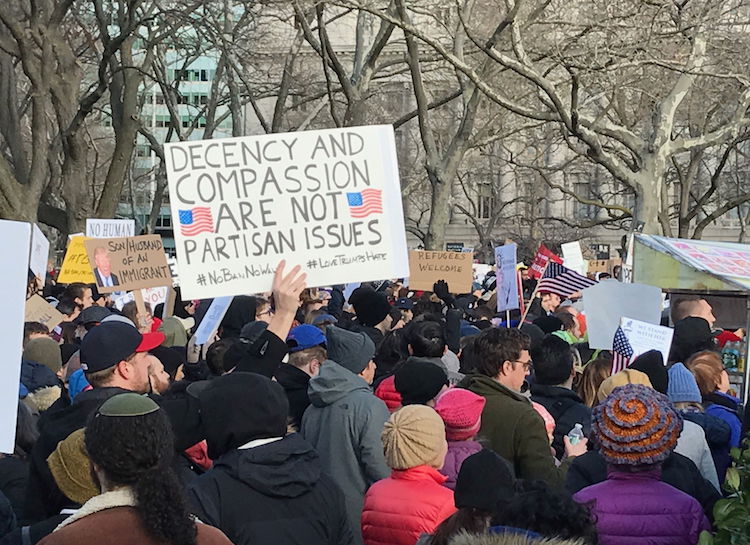
Photo credit: Cate Matthews
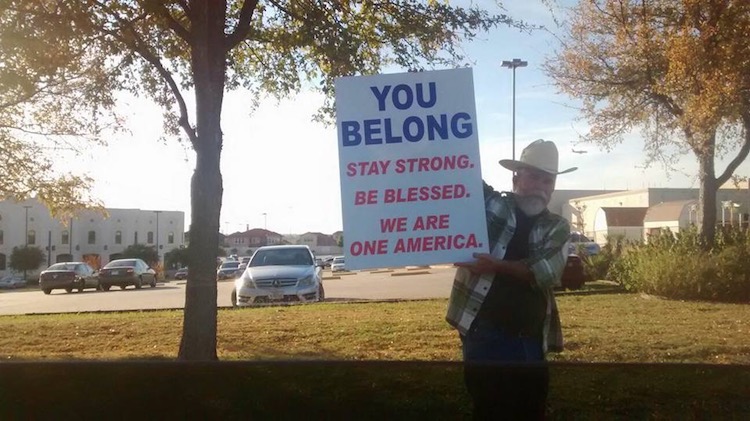
Photo credit: Lexi_Ann16
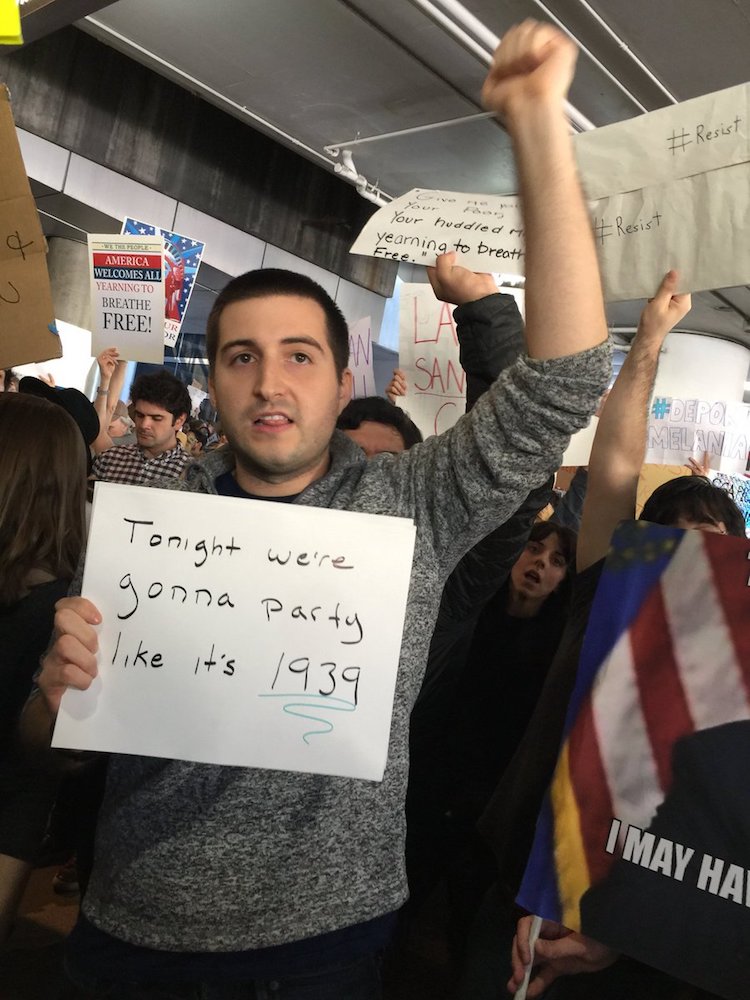
Photo credit: Stop Trump
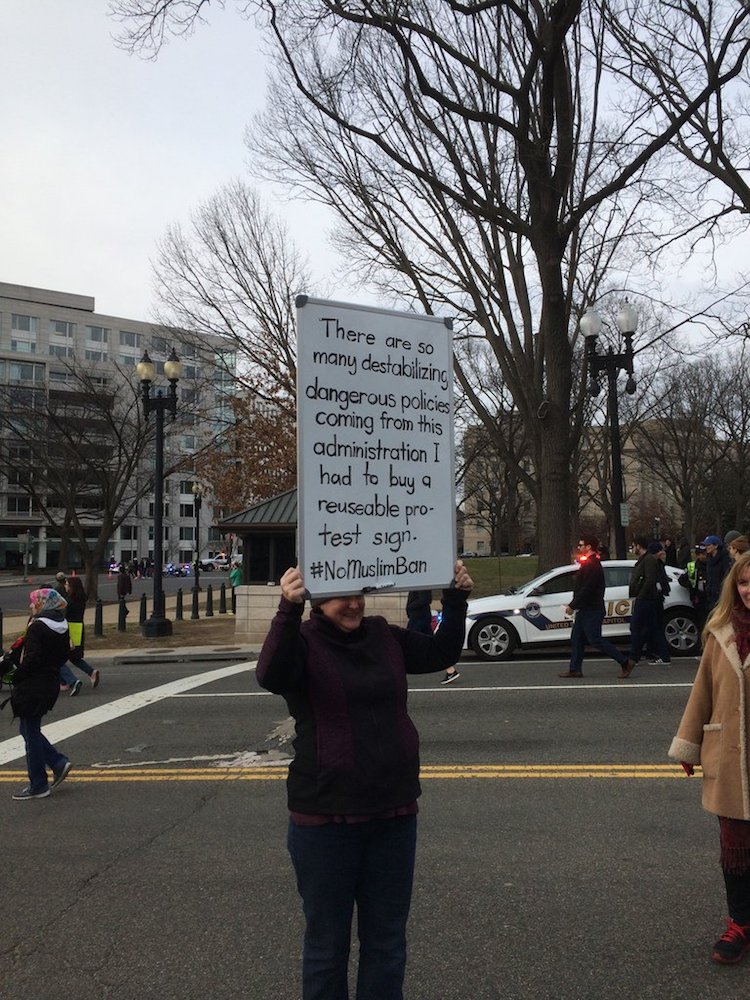
Photo credit: BuzzFeed News
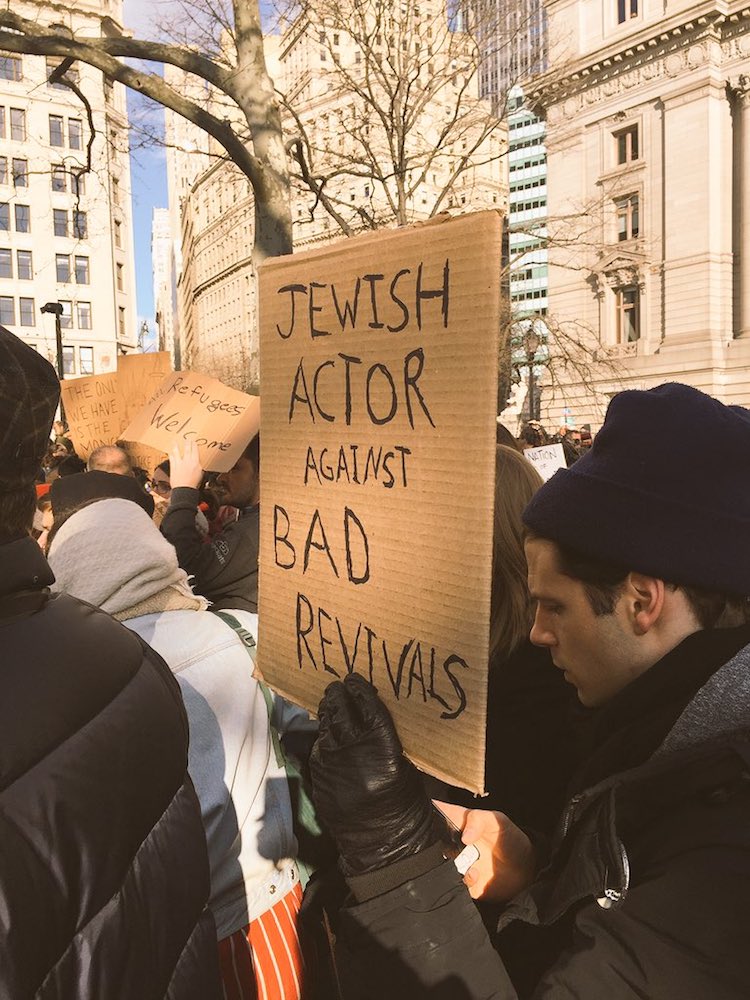
Photo credit: Caroline McCarthy
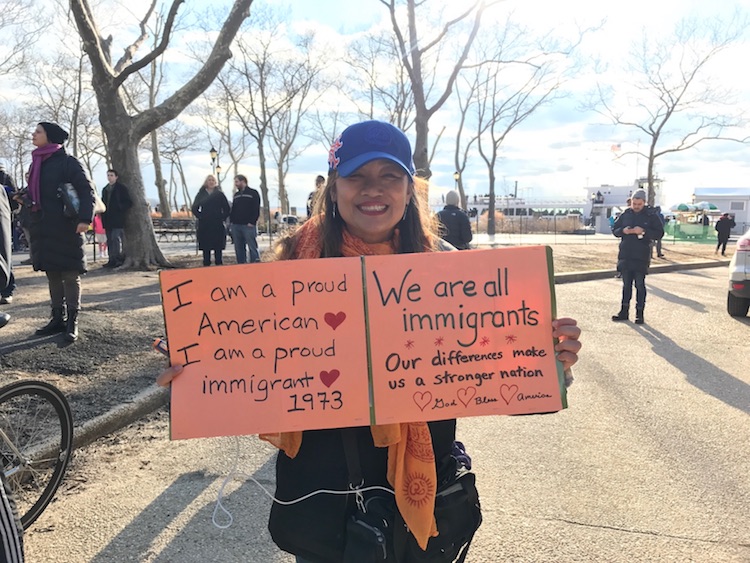
Photo credit: Cate Matthews
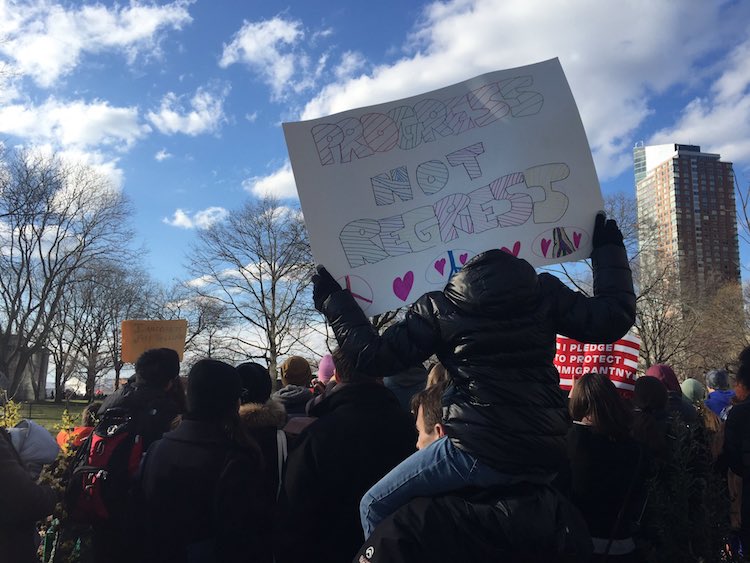
Photo credit: Hayley Miller
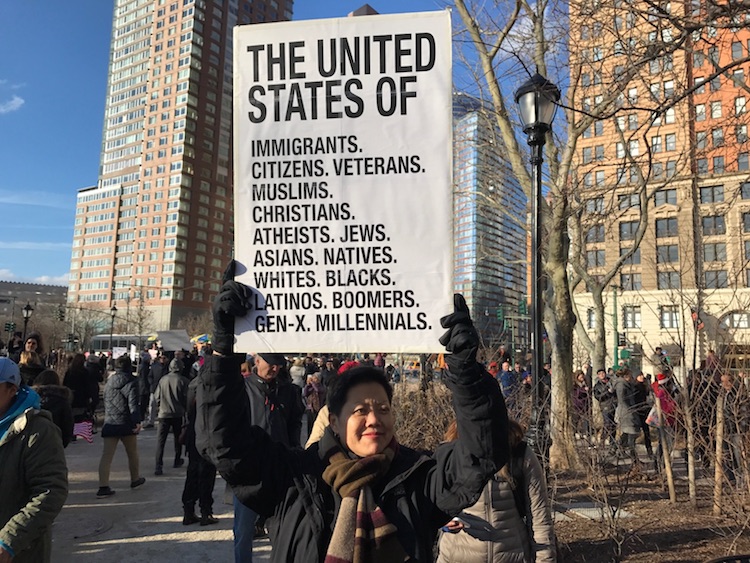
Photo credit: Cate Matthews
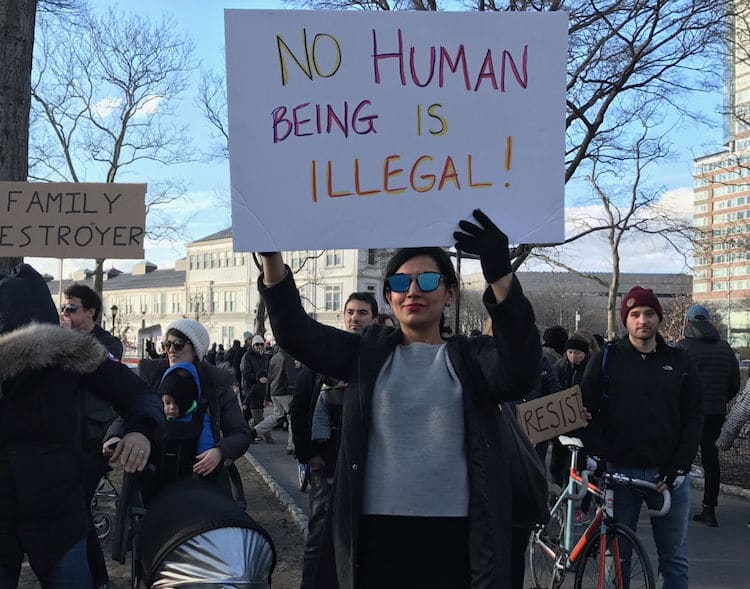
Photo credit: Cate Matthews
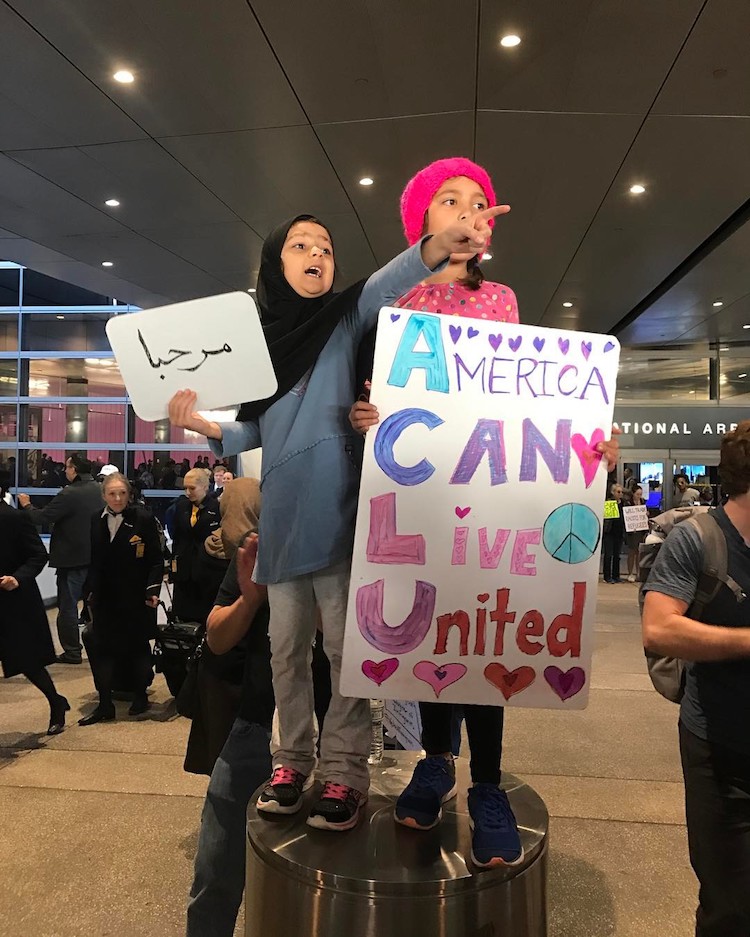
Photo credit: @bex_tk
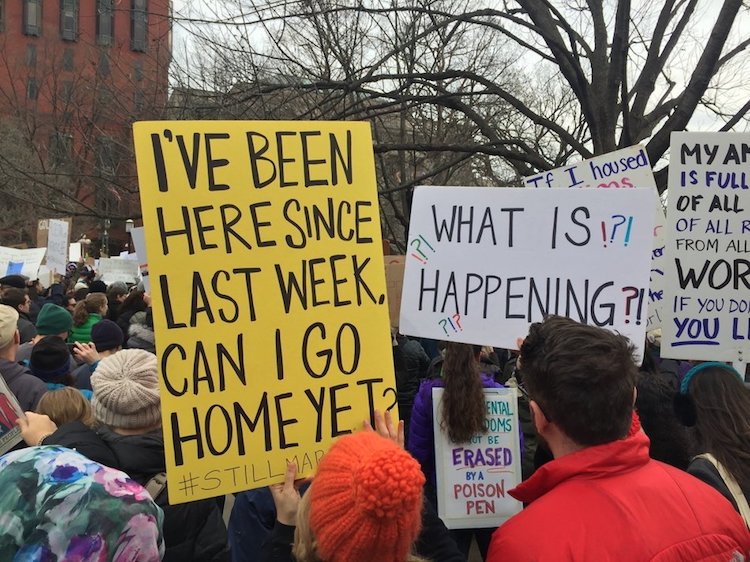
Photo credit: Laura Bassett
Though not a sign, Redditor Rahaverfield shared a page out of a US passport to prove that immigrants are welcome here.
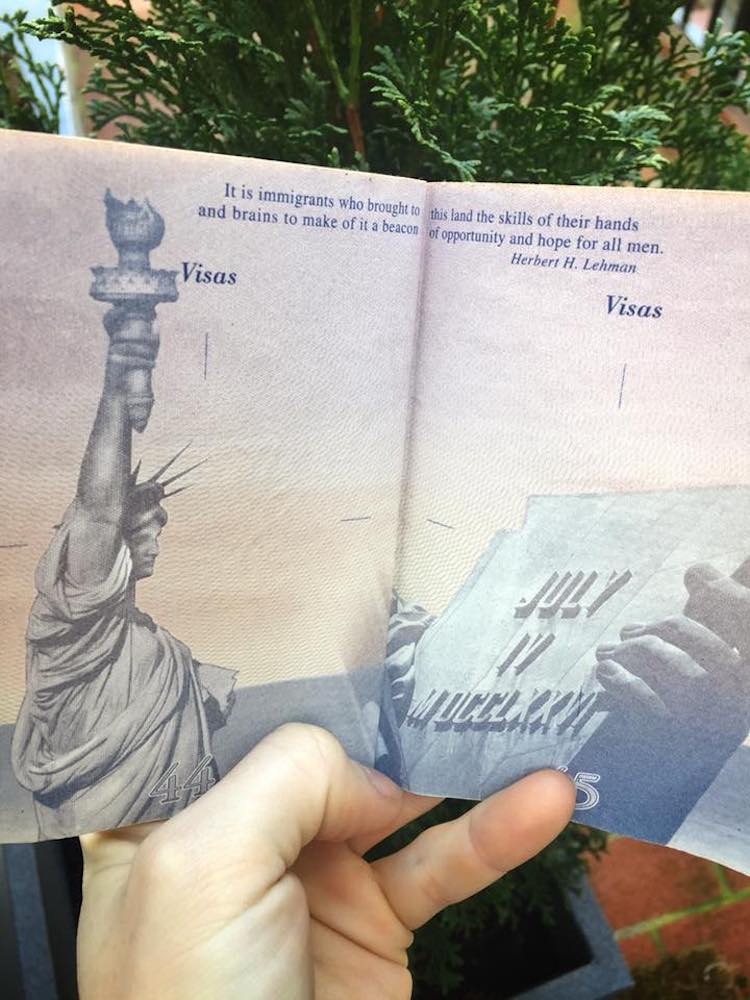
Photo credit: Rahaverfield











































































